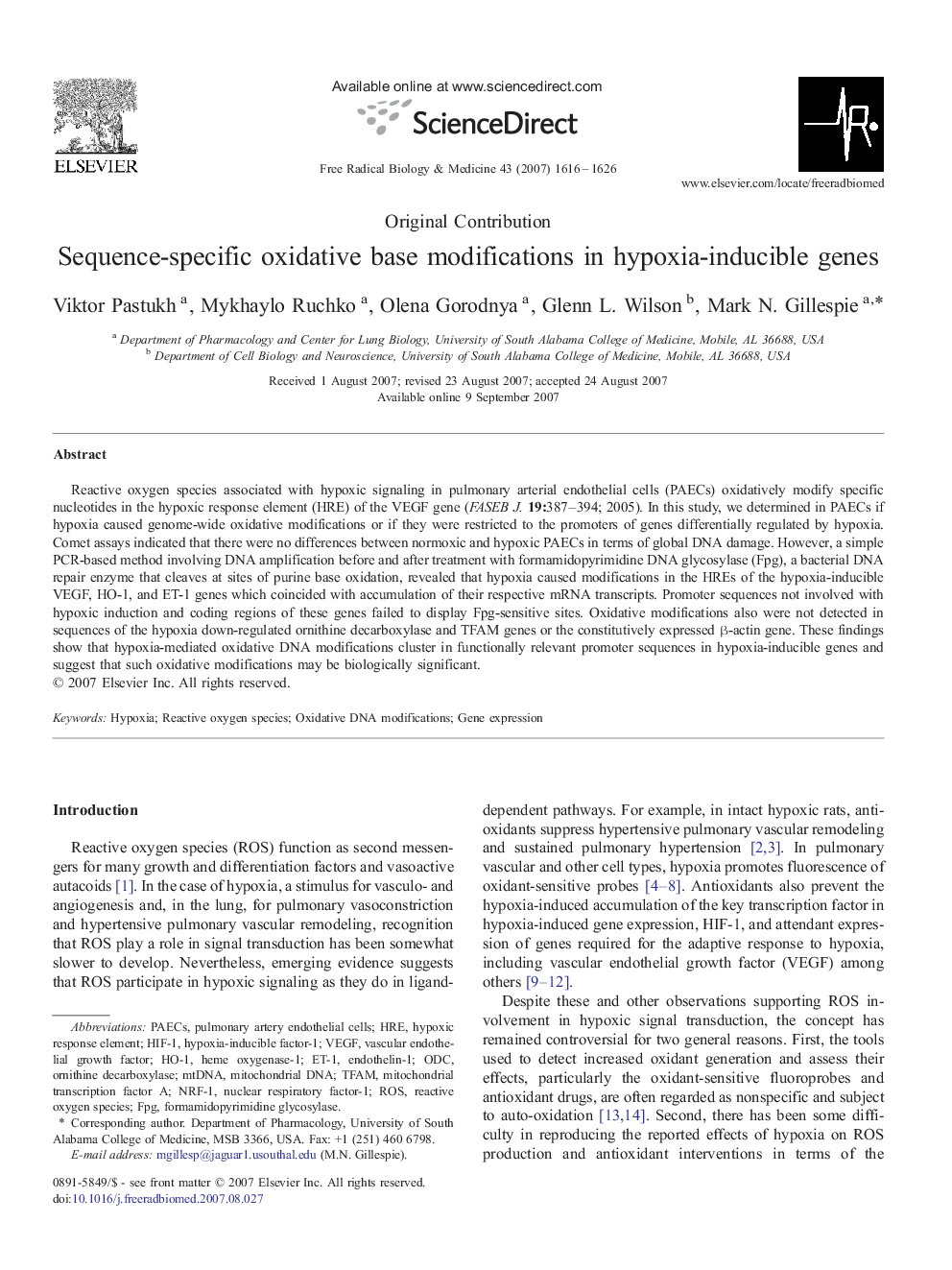| Article ID | Journal | Published Year | Pages | File Type |
|---|---|---|---|---|
| 1910506 | Free Radical Biology and Medicine | 2007 | 11 Pages |
Reactive oxygen species associated with hypoxic signaling in pulmonary arterial endothelial cells (PAECs) oxidatively modify specific nucleotides in the hypoxic response element (HRE) of the VEGF gene (FASEB J.19:387–394; 2005). In this study, we determined in PAECs if hypoxia caused genome-wide oxidative modifications or if they were restricted to the promoters of genes differentially regulated by hypoxia. Comet assays indicated that there were no differences between normoxic and hypoxic PAECs in terms of global DNA damage. However, a simple PCR-based method involving DNA amplification before and after treatment with formamidopyrimidine DNA glycosylase (Fpg), a bacterial DNA repair enzyme that cleaves at sites of purine base oxidation, revealed that hypoxia caused modifications in the HREs of the hypoxia-inducible VEGF, HO-1, and ET-1 genes which coincided with accumulation of their respective mRNA transcripts. Promoter sequences not involved with hypoxic induction and coding regions of these genes failed to display Fpg-sensitive sites. Oxidative modifications also were not detected in sequences of the hypoxia down-regulated ornithine decarboxylase and TFAM genes or the constitutively expressed β-actin gene. These findings show that hypoxia-mediated oxidative DNA modifications cluster in functionally relevant promoter sequences in hypoxia-inducible genes and suggest that such oxidative modifications may be biologically significant.
